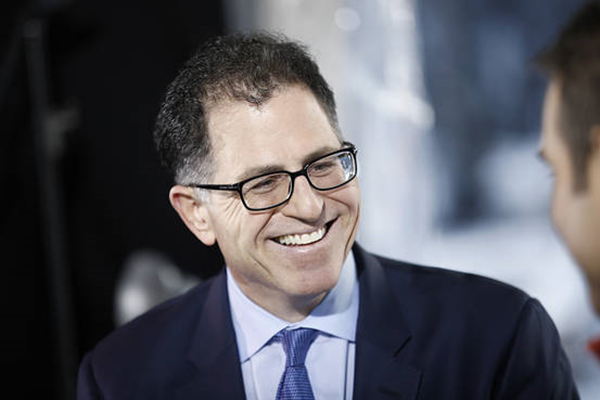
|
Dell’s Value and the ‘Falling Knife’ |
|
By
David Benoit
|

Michael Dell
— Bloomberg News
|
Michael Dell and Silver Lake appear to have handled that “falling knife”
they were trying to catch in 2013 pretty well.
Don’t expect some shareholders of the old Dell Inc. to applaud the feat.
The now-private company’s equity value has roughly doubled since the $25
billion buyout closed in late 2013, according to people familiar with the
matter. And now,
Dell is buying
EMC Corp. for $67 billion in the
largely pure technology deal in history.
That’s a far cry from the situation just two years ago, when Institutional
Shareholder Services Inc. said Mr. Dell was “trying to catch a falling
knife” with the deal. And it’s not likely to sit well with the shareholders
who fought the Dell buyout as too cheap, including Southeastern Asset
Management and Carl Icahn.
Southeastern, Dell’s largest outside shareholder when the deal was
announced, led the charge against the buyout. The asset manager
argued that Dell was worth $24 a share,
more than $10 over the $13.65 offer (which was later increased to $13.75.)
The
fund had once approached Mr. Dell
about helping fund a buyout itself, according to filings, then found itself
on the outside.
After Southeastern spoke up, Mr. Icahn purchased a large stake and launched
a campaign against Mr. Dell and the company’s board, saying the deal
essentially amounted to a theft of the company from public shareholders. The
Dell buyout was the first subject of Mr. Icahn’s Twitter account, which has
since grown to a stock-moving sounding board for the activist.
Southeastern declined to comment Monday. Mr. Icahn wasn’t immediately
available to comment.
Mr. Dell and his board argued that the
company’s business was receding,
pointing out their frequent inability to hit internal forecasts and the
broad decline in the personal computer business. The plan, Mr. Dell said,
was to pivot to enterprise offerings, away from consumer customers, out of
the spotlight of public earnings.
Southeastern and Mr. Icahn didn’t disagree with that plan. But they argued
the buyout was unfairly shortchanging shareholders, who were getting a
premium of about 25% over where Dell shares were trading before the deal was
reached. They also said the company was emphasizing a struggling PC business
in order to keep the price down, even as it was moving away from PCs.
Of course, those that argued that Mr. Dell and Silver Lake were accounting
for risk in the 2013 buyout are unlikely to change their argument today
because of their success. Instead, they would likely credit their execution
of the turnaround.
Some of Dell’s old shareholder continue to fight the buyout, taking the deal
to court to try to get a judge to rule their shares were worth more. Neither
Southeastern nor Mr. Icahn is involved in the appraisal lawsuit. The Dell
appraisal trial ended last week and is awaiting a judge’s decision.
What do the appraisal-seekers think Dell was worth at the time of the
buyout? Roughly double.
.”
|